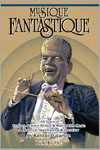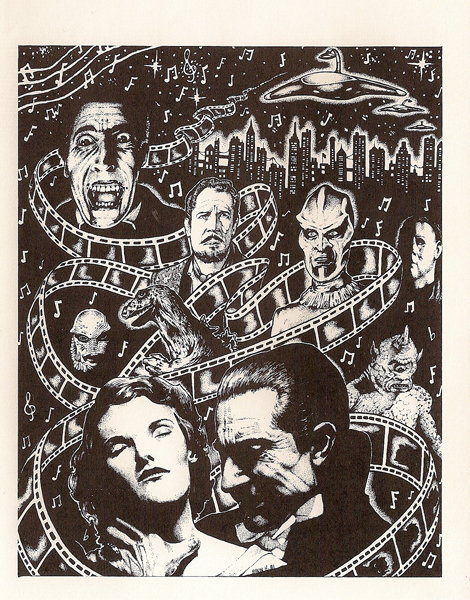July 26, 2018
Remembering Patrick Williams and his early fantasy-horror scores
Composer Patrick Williams passed away early Wednesday morning of complications from cancer. He was 79.
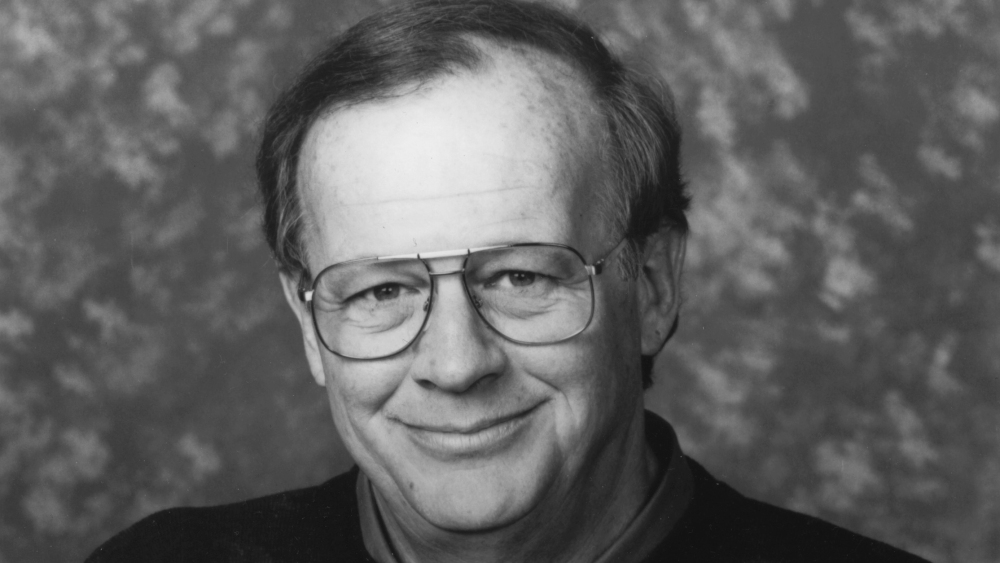
Williams served as a versatile and innovative film composer, arranger, and conductor for popular music, concert, film, and television for more than thirty years, gaining more than 200 film and TV scoring credits listed on IMDB. He worked in many genres and won four Emmy Awards (out of 22 nominations), two Grammys for his jazz arrangements, an Oscar nomination for film composition (best music, original song score, and best adaptation score for 1979’s BREAKING AWAY), and a Cable ACE award (plus two nominations). He was nominated for the Pulitzer Prize for composing the orchestral work An American Concerto in 1977, and he was awarded the Richard Kirk Achievement Award from BMI in 1997.
His film scores tended toward comedies and comedy-dramas, and his scores were tuneful, memorable, and quite affecting, but it was in episodic television that Williams was most active, and arguably made the most significant impression in media music. He composed episodes of LOU GRANT, COLUMBO, THE STREETS OF SAN FRANCISCO (including its theme), THE BOB NEWHART SHOW, THE MARY TYLER MOORE SHOW, and much more. He was one of the few composers who filled in on THE SIMPSONS in the transition between Richard Gibbs (Season 1) and Alf Clausen (Season 2), scoring Season 2’s second episode, “Simpson and Delilah.” Williams’ last music for film and television was for NBC’s 2-episode 2005 miniseries, HERCULES.
Genre Work
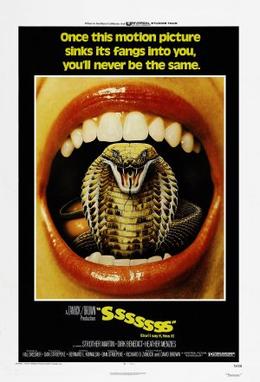 Patrick Williams scored only a few science fiction/horror pictures in his early years in film music. His first and best horror movie score was for a film titled, simply, SSSSSSSS (1973, called SSSSSNAKE abroad), about a mad scientist (Strother Martin) who for unexplained reasons chemically transforms a man into a giant cobra. Williams provided an understated score, emphasizing the plain weirdness of the tale through an ambiance of synthesizer tonalities, an array of hand-beaten percussion gourds, and an icily beautiful twinkling piano motif that adds a sparkle of increased unease to the frequent sustained strings and spooky tones once the story gets going. The piano emphasizes the consternation encountered by student David Blake (Dirk Benedict) as, after treatments, his skin begins to shed and develop a scale-like texture. During the transformation scene, when Martin’s injections turn Blake into the oversized hooded serpent, Williams’ subtle sonority of weird synth tones and percussion blends into a more explicit array of strenuous strings and brass, morphing into a stretchy, sinewy solo violin melody as bones and flesh shift and stretch and he fully becomes a wriggling snake, echoing a spooky three-note theme that was more subtly introduced earlier.
Patrick Williams scored only a few science fiction/horror pictures in his early years in film music. His first and best horror movie score was for a film titled, simply, SSSSSSSS (1973, called SSSSSNAKE abroad), about a mad scientist (Strother Martin) who for unexplained reasons chemically transforms a man into a giant cobra. Williams provided an understated score, emphasizing the plain weirdness of the tale through an ambiance of synthesizer tonalities, an array of hand-beaten percussion gourds, and an icily beautiful twinkling piano motif that adds a sparkle of increased unease to the frequent sustained strings and spooky tones once the story gets going. The piano emphasizes the consternation encountered by student David Blake (Dirk Benedict) as, after treatments, his skin begins to shed and develop a scale-like texture. During the transformation scene, when Martin’s injections turn Blake into the oversized hooded serpent, Williams’ subtle sonority of weird synth tones and percussion blends into a more explicit array of strenuous strings and brass, morphing into a stretchy, sinewy solo violin melody as bones and flesh shift and stretch and he fully becomes a wriggling snake, echoing a spooky three-note theme that was more subtly introduced earlier.
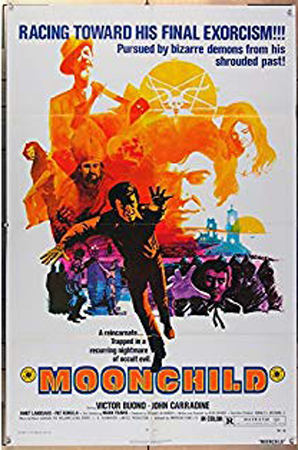 A similar mélange of early sound design and atonal sonic articulation is heard in 1974’s MOONCHILD, a very low-budget bit of surrealistic cultic fantasy that starred Victor Buono, John Carradine, and William Challee. The story had to do with a young artist who spends the night at a mysterious inn, where he meets a group of strange, sullen people, among them the innkeeper’s beautiful daughter. Turns out the artist has wandered into a kind of spiritual void, and the inn’s residents are engaging in a battle over his soul. Williams is credited with composing the score in collaboration with Billy Byers (HAUSER’S MEMORY, 1970; THE ASTRONAUTS, 1984); it’s a creepy and psychedelic mix of cult chanting, eerie soprano vocalise over dreamlike bell tree, and shimmering cymbals, and later a bit of progressive rock with weird, distorted tape manipulation and a mix of atonal surrealism via electric guitar, bass, piano, and washboard. Definitely an evocative sound mix maintaining an unsettling mood for the story it envisions. Williams is also indicated to have provided music, sans credit, on HEX, an anachronistic 1973 fantasy involving witchcraft and a time warp that launches a motorcycle gang back to the 1800s where they threaten, and are threatened by, in return, a pair of supernaturally-inclined lady homesteaders. Charles Bernstein is the composer of record; and I haven’t yet been able to determine what, if any, music Patrick Williams may actually have contributed to this score.
A similar mélange of early sound design and atonal sonic articulation is heard in 1974’s MOONCHILD, a very low-budget bit of surrealistic cultic fantasy that starred Victor Buono, John Carradine, and William Challee. The story had to do with a young artist who spends the night at a mysterious inn, where he meets a group of strange, sullen people, among them the innkeeper’s beautiful daughter. Turns out the artist has wandered into a kind of spiritual void, and the inn’s residents are engaging in a battle over his soul. Williams is credited with composing the score in collaboration with Billy Byers (HAUSER’S MEMORY, 1970; THE ASTRONAUTS, 1984); it’s a creepy and psychedelic mix of cult chanting, eerie soprano vocalise over dreamlike bell tree, and shimmering cymbals, and later a bit of progressive rock with weird, distorted tape manipulation and a mix of atonal surrealism via electric guitar, bass, piano, and washboard. Definitely an evocative sound mix maintaining an unsettling mood for the story it envisions. Williams is also indicated to have provided music, sans credit, on HEX, an anachronistic 1973 fantasy involving witchcraft and a time warp that launches a motorcycle gang back to the 1800s where they threaten, and are threatened by, in return, a pair of supernaturally-inclined lady homesteaders. Charles Bernstein is the composer of record; and I haven’t yet been able to determine what, if any, music Patrick Williams may actually have contributed to this score.
I had the pleasure of interviewing Patrick a couple of times, first for Soundtrack magazine in 2000, asking about his then-recent scores, the 1999 mini-series JESUS, and the TV-movie biopic, THE THREE STOOGES (an unlikely pair, I’ll admit). I interviewed him again in August, 2011, relative to my writing the notes for La-La Land Records’ release of his soundtrack to USED CARS (currently sold out). The former interview has been archived here. His remarks on scoring both of these films are interesting and entertaining – and, for me, very memorable.
For more information on Patrick Williams, his career, and samples & videos of his music, see his web site http://patrickwilliamsmusic.com/.

